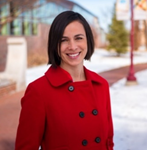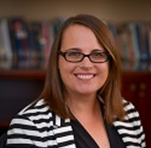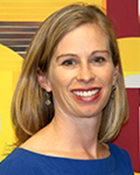January 2019 Educator | Resource
The Center for Diversity and Social & Economic Justice(Opens in a new window) Educator|Resource is a monthly feature that highlights curricular resources and social work educators that address diversity and justice.
Prevention Training Modules for Behavioral Health Practice
Racial and socioeconomic disparities increase the risk of behavioral health problems in childhood and adolescence, from anxiety to dropping out of school, in part due to lack of resources that can serve as buffers for problems in living. Social workers now have access to research-based prevention strategies that can be integrated into direct practice and community-level interventions. This month’s Educator|Resource offers a set of the prevention training modules created by the Coalition for the Promotion of Behavioral Health(Opens in a new window) that include ready-to-use lecture notes, short videos, activities, and discussion questions. These modules fit well into foundation theory, practice, and community courses to integrate a prevention perspective into what can often be more treatment-oriented coursework.
Teaching Resources
About the Educators: Dr. Kimberly Bender, Jeffrey M. Jenson, Ph.D., Dr. Anne Williford, Elizabeth Anthony |
|
|
Dr. Kimberly Bender(Opens in a new window) is a professor at the University of Denver Graduate School of Social Work(Opens in a new window). A steering committee member for the Coalition for the Promotion of Behavioral Health(Opens in a new window), Dr. Bender leads the initiative to increase prevention training in schools of social work. Her research examines how adults can partner with young people experiencing homelessness to prevent adverse experiences and improve safety and stability. Dr. Bender earned her PhD at the University of Texas at Austin. |
|
|
Jeffrey M. Jenson, Ph.D(Opens in a new window) is the Philip D. and Eleanor G. Winn Endowed Professor for Children and Youth in the Graduate School of Social Work, University of Denver. His research involves the evaluation of preventive interventions aimed at promoting healthy youth development. He is chair of the Coalition for the Promotion of Behavioral Health(Opens in a new window) and co-lead of Unleashing the Power of Prevention, an initiative of the Grand Challenge for Social Work: Ensure Healthy Development for all Youth. |
|
|
Dr. Anne Williford (Opens in a new window)is an associate professor in the School of Social Work at Colorado State University. Her research focuses on the etiology of bullying, aggression, and peer victimization among youths, particularly emphasizing ecological factors that contribute to the development and maintenance of these behaviors in peer, school, family, and community settings. She has a PhD in social work from the University of Denver. Before receiving her PhD, Dr. Williford worked as a clinical and community level social worker with diverse populations. |
|
|
Elizabeth Anthony(Opens in a new window) is an associate professor in the School of Social Work at Arizona State University. She earned her PhD from the University of Denver. Dr. Anthony's scholarship centers on the well-being of low-income children and adolescents. Her areas of expertise include resilience among children and adolescents exposed to environmental stressors, prevention of behavioral health concerns, measurement of well-being among children and adolescents, and innovative models to support families (such as peer parent models). |
Educator Q&AWhy should I integrate prevention material into my training of social workers? Social work students get a great deal of training in how to address social problems that are significant issues in people’s lives. This treatment-oriented training is valuable and helps many young people and their families after they are already involved in the juvenile justice system, have been diagnosed with mental health problems, are seeking substance use treatment, or are dropping out of school. But what if social workers could help prevent youths and their families from ever experiencing these challenges? There are several reasons we should invest in prevention training:1. Preventing problems or solving them before they have reached serious levels means many young people and their families will experience less tension, conflict, and suffering. Read the full Q&A(Opens in a new window). Interested in contributing to the Educator | Resource of the Month? Please e-mail a short proposal to Dr. Yolanda Padilla, CSWE Diversity Center Director, at ypadilla@cswe.org. |



